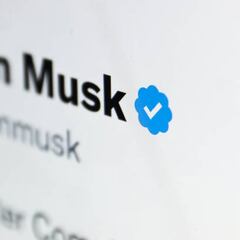Can the US government review Elon Musk’s Twitter deal?
Musk has begun to swing his axe in the company but there are whispers in the Democrat party that the buyout could post a national security risk.


Elon Musk’s purchase of Twitter has been a bit of a rollercoaster ride. It was on, it was off, it was back on again, there were legal problems, though finally it got over the line. Musk has stamped his authority by removing previous executives and dissolving the board of directors.
But there could yet be another twist in the story as Democrat lawmakers have called for a investigation into the purchase. Democratic Senator Chris Murphy has called upon the federal government to look into Musk’s links to foreign governments, particularly Saudi Arabia.
Social media companies and foreign influence
Saudi Arabian Prince Alwaleed bin Talal has a $1.9 billion stake in Twitter, making him the second-largest shareholder in the company. bin Talal is the grandson of the first Saudi king, Abdulaziz. Amercian-Saudi relations are at their lowest in years after the Saudi state killing of US citizen Jamal Khashoggi and the Saudi refusal to support US oil ambitions.
“We should be concerned that the Saudis, who have a clear interest in repressing political speech and impacting US politics, are now the second-largest owner of a major social media platform,” Murphy said in a tweet on Monday.
Today I am requesting the Committee on Foreign Investment — which reviews acquisitions of U.S. businesses by foreign buyers — to conduct an investigation into the national security implications of Saudi Arabia's purchase of Twitter.https://t.co/IDwnKGaxt7
— Chris Murphy (@ChrisMurphyCT) October 31, 2022
“There is a clear national security issue at stake and CFIUS should do a review,” Murphy said. He also noted that another huge social media site in the US, TikTok, is owned by a Chinese company.
The CFIUS is the Committee on Foreign Investment in the United States. The CFIUS reviews takeovers of US businesses by people from abroad.
According to the 2021 annual CFIUS report to Congress, the panel has the authority to “review pending or completed transactions” if a member of the committee believes there are national security concerns. A notable time the CFIUS was called into action was the sale of Grindr from a Chinese to US company in 2019. The committee had concerns about the safety of users data surroudning information on AIDs and HIV.
Two weeks ago, Saudi Arabia sentenced a 72 year old American citizen to 16 years in jail for tweets critical of the regime he sent while in America.
— Chris Murphy (@ChrisMurphyCT) October 30, 2022
This week, the Saudis partnered with Elon Musk to buy Twitter.
Do you think the Saudis bought it to promote free speech? pic.twitter.com/DAHOvG8iuE
Related stories
Neither the White House nor the Treasury Department have commented upon the call from Murphy and the CFIUS does not publicise which transactions it is looking into.
Musk has not commented.

